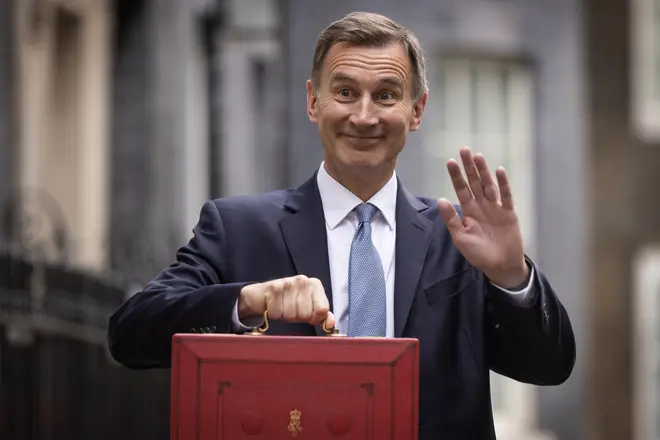
James O'Brien 10am - 1pm
15 March 2023, 14:50 | Updated: 15 March 2023, 15:16

The Chancellor’s budget was well delivered and obtained a rousing reception (from his own side) in the House of Commons.
We’ve now had a chance to read the supporting documents and it looks a bit less impressive.
What appeared to be quite an expensive and carefully worked out programme to bring people back into the labour force, with child care measures alone costing over £5 billion a year, is estimated by the OBR only to boost the labour force by 110,000 in total.
The world class investment allowance regime announced in the Budget is only expected to boost investment by 3½ % (lower than Cebr’s estimate of about 5%.)
Read more: What the budget means for you
The good news is that the economy is set to avoid recession this year on the OBR forecasts - if only by the skin of its teeth with GDP overall for the year still down by 0.2%.
Somewhat implausibly, growth returns at an annual average rate of close to 2% thereafter. Since it has actually declined in size since pre-pandemic with unemployment remaining stubbornly below 4%, the Chancellor seems to be betting on a miracle.
We suspect the OBR is overoptimistic about both getting growth up and inflation, which is expected to fall back to target level next year, down.
In the circumstances, although we give the Chancellor bonus points for trying to reboot the labour supply, he seems to have flunked his other challenge, which is bringing public spending into line with the country’s sluggish GDP prospects.
Income taxes are rising as a result of stealthy freezing of tax allowances.
Capital gains allowances are being cut. And the rate of corporation tax for 90% of the economy rises by a third from 19% to 25% in April.
This mainly is paying for a public sector where productivity has fallen by over 6% since before the pandemic and where many benefits make it uneconomic for people to work.
With an economy currently flatlining, it is doubtful if the spending plans embodied in the budget are affordable.
One suspects that whoever is Chancellor next year or the year after will have a problem on his or her hands.
Douglas McWilliams is Deputy Chairman of Cebr, the economics think tank